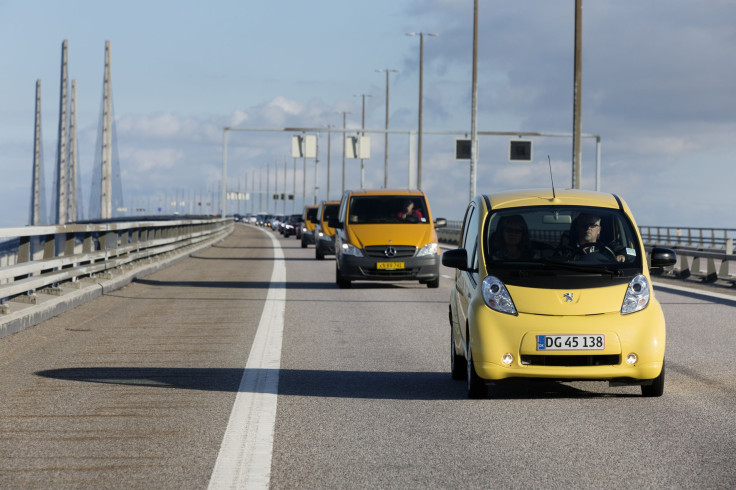Climate Change: Europe Will Fail To Meet Ambitious 2050 Greenhouse Gas Emission Targets, Experts Say

The European Union will fail to meet its aggressive climate change goals unless significant changes are made, according to a report published Tuesday. The news comes after the group’s 28 member states spent years implementing drastic changes to energy and transportation infrastructure to adhere to the EU's goal of reducing greenhouse gas emissions by 80 to 95 percent from 1990 levels by 2050.
The report highlights the difficulty of making meaningful shifts even when citizens feel a strong commitment to do so.
“The level of ambition of existing environmental policy may be inadequate to achieve Europe's long-term environmental goals,” the European Environment Agency states in the report. Those goals were set based on measures that the Intergovernmental Panel on Climate Change says are necessary to keep the average global temperature from rising by more than 2 degrees Celsius as compared with pre-industrial times.
The agency showed that while the EU is well on its way to “over-deliver” on its pledge to reduce greenhouse gas emissions by 20 percent by 2020, the more ambitious 2050 goal remains stubbornly out of reach. This is true despite the fact that Europe has made great strides in recent years: Today’s emissions are 19 percent lower than 1990 levels even though the economy has grown by 45 percent, according to the report. This “decoupling” of economic growth and environmental costs is notable because the two have long been linked and remain so throughout most of the world.
One of the greatest remaining challenges for the coalition of the world’s greenest countries is finding cleaner sources of fuel for transportation, which is currently to blame for 24 percent of the EU’s emissions. To meet the 2050 target, those emissions must be reduced by 60 percent from today’s levels, according to the European Commission. Transportation is the only sector of the economy where emissions there have grown since 1990. The mayor and city council of Paris recently imposed a ban on diesel cars within the city due to concerns about air pollution from dirty emissions.
Hans Bruyninckx, executive director of the agency that produced the report, said that energy efficiency is another major area where improvements could be made, according to the New York Times. The European Commission has also stated that it will bring forward new legislation on renewable energy by 2017 but has not yet made any details available. Member states have already passed about 500 policies and rules related to climate change, according to the EU Observer.
The United States has more modest goals for emissions, including a commitment to cut 2005 levels by 26 to 28 percent by 2025 as part of a historic climate deal struck with China last year. The U.S. is roughly halfway to achieving this reduction since emissions in 2012 were about 10 percent lower than 2005 levels, according to the Environmental Protection Agency. Meanwhile China, the world’s biggest polluter, fully expects its short-term emissions to grow as it builds a new power plant in the country every eight to 10 days but has promised to start cutting back by 2030 at the latest.
© Copyright IBTimes 2024. All rights reserved.






















